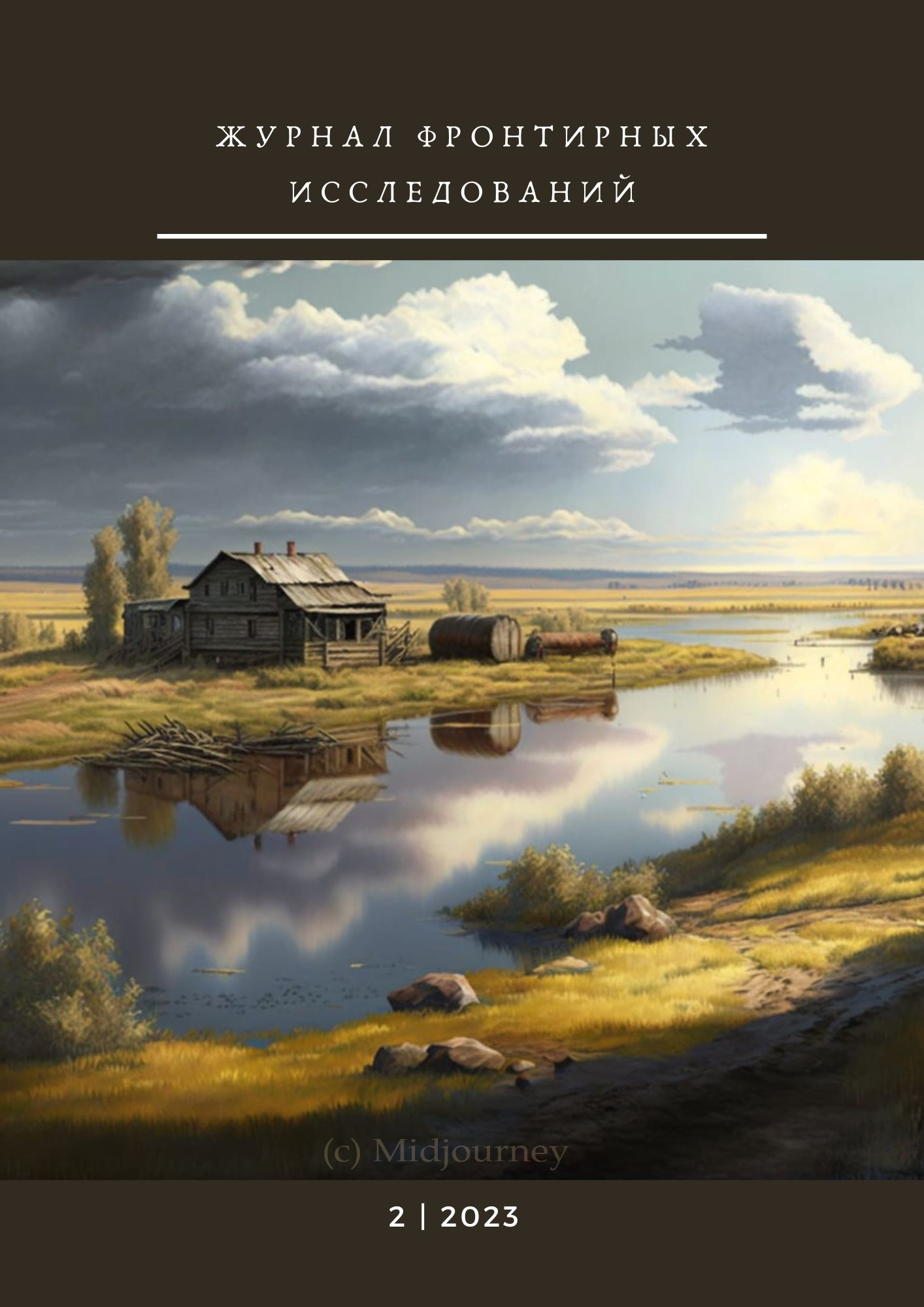Abstract
The article analyzes the situation in Southern Manchuria in the Chinese city of Telin in 1901 as a result of the actions of Luzhansky (Luzhanskiy), a railway technician who served in the CER Society. Luzhansky showed direct violence toward indigenous people and Chinese workers during the laying of the track. The established administrative system of administration in the territory of the CER right‑of-way could not resolve the conflict between the Chinese and Russian subjects. Luzhansky's case could have been regulated by the Tianjin Treaty of 1858 and the 1896 treaty for the construction and operation of the railroad, but the railway technician's actions extended beyond Northern Manchuria.
Given that the Luzhansky technician's trial caused a clash of Russian and Chinese jurisdictions, this article examines the formation of the judicial system in the CER right-of-way. Such cases of violations of Chinese rights by Russian railway engineers provoked a discussion between Russian ministers on the issue of organizing a Russian court in Manchuria. The specific case of engineer Luzhansky reflects the colonial behavior and the subject's reaction in frontier territory. This article considers only a local case of the exercise of a special imperial right by a railroad technician and the restriction of his activities as a result of violations of the law, corporate ethics, and the 1898 lease agreement.
References
Album of constructions and type drawings of Chinese Eastern line 1897–1903. (1903). Photo-lithography by K.A. Fisher. (In Russian).
Borisova, T. (2016). Public Meaning of the Zasulich Trial 1878: Law, Politics and Gender. Russian History, 43 (3–4), 221–244. https://doi.org/10.1163/18763316-04304002
Borisova, T. Y. (2018). “The Necessary Defense of Society”: The language of Zasulich's trial. In T. Atnashev & M. Velizhev (Eds.), The Cambridge School: Theory and Practice of Intellectual History (pp. 522–546). New Literary Review. (In Russian).
Borisova, T. & Burbank, J. (2018). Russia’s Legal Trajectories. Kritika: Explorations in Russian and Eurasian History, 19 (3), 469–508. https://doi.org/10.1353/kri.2018.0027
Chinese Eastern line. Scheme of stations and passing-tracks allocation. South Manchurian branch. (1903). Technician Aotolit G. de Kelsch. (In Russian).
Dudin, P. N. (2019). Quasi-State Frontiers of European Powers in East Asia: “Export of Jurisdiction” and Foreign Settlements in China in the Late 19th and Early 20th Centuries. International Relations, 4 (4), 61–79. https://doi.org/10.7256/2454-0641.2019.4.31465 (In Russian).
Engelstein, L. (1992). The keys to happiness: Sex and the search for modernity in fin-de-siècle Russia. Cornell University Press.
Hsu, C. Y. (2011). Railroad Technocracy, Extraterritoriality, and Imperial Lieux de Mémoire in Russian Émigrés’ Manchuria, 1920–1930s. Ab Imperio, 2011 (4), 59–105. https://doi.org/10.1353/imp.2011.0029
Kazantsev, V. P. (2012). Formation of the Administrative and Police System of the CEL (1896–1905). Russia and the Asia-Pacific Region, 3, 33–43. (In Russian).
Lukoyanov, I. V. (2008). “Keeping up with the powers...”: Russia in the Far East in the late 19th – early 20th centuries. Nestor-Istoriya. (In Russian).
Lukoyanov, I. V. & Pavlov, D. B. (2018). Port Arthur and the Dalny, 1894–1904: The Last Colonial Project of the Russian Empire. Center for Humanitarian Initiatives. (In Russian).
Meshcheryakov, A. Yu. & Antropov, O. K. (2017). Russian diaspora in China: variant of cultural hybridity. Journal of Frontier Studies, 2, 30–58. https://doi.org/10.46539/jfs.v0i2.55 (In Russian).
Meshcheryakov, A. Yu. & Antropov, O. K. (2019). Peculiarities of the Russian Colonization of Manchuria at the end of the 19th – the beginning of the 20th centuries. Manuscript, 4, 35–40. https://doi.org/10.30853/manuscript.2019.4.6 (In Russian).
Rieber, A. J. (1990). The Rise of Engineers in Russia. Cahiers Du Monde Russe et Soviétique, 31(4), 539‑568.
Russian State Historical Archive (RSHA). (n. d.-a). F. 274. In. 2. C. 472. (In Russian).
Russian State Historical Archive (RSHA). (n. d.-b). F. 323. In. 1 C. 481. (In Russian).
Russian State Historical Archive (RSHA). (n. d.-c). F. 323. In. 1. C. 1252. (In Russian).
Russian State Historical Archive (RSHA). (n. d.-d). F. 323. In. 1. C. 1256. (In Russian).
Russian State Historical Archive (RSHA). (n. d.-e). F. 323. In. 1. C. 2763. (In Russian).
Russian State Historical Archive (RSHA). (n. d.-f). F. 323. In. 2. C. 25. (In Russian).
Salogub, Y. L. (2016). Formation of mixed ships in the CEL right-of-way (1896–1905). Society and State in China, 46(1), 647–652. (In Russian).
Sikorsky, F. Yu. (1915). Russian court in Manchuria. Journal of the Ministry of Justice, 3, 49–83. (In Russian).
State Archive of Astrakhan Region (GAAR). (n. d.). F. 1096. In. 1. C. 3. (In Russian).
White, R. (2011). The Middle Ground. Indians, Empires and Republics in the Great Lakes Region, 1650‑1815. Cambridge University Press. https://doi.org/10.1017/CBO9780511976957
Yakushenkov, S. N. & Mescheryakov, A. Yu. (2022). Gardens of Empire: Imperial Practices and the Construction of a New Imperial Space. Journal of Frontier Studies, 7 (1), 131–170. https://doi.org/10.46539/jfs.v7i1.373 (In Russian).
Yakushenkov, S. N. & Yakushenkova, O. S. (2012). The Body of the Barbarian: Constructing the Image of the Alien on the Chinese Frontier. Caspian Region: Politics, Economy, Culture, 4, 233–240. (In Russian).
Yakushenkov, S. N. & Yakushenkova, O. S. (2013). Typology of Frontier Stages through the Prism of Gender Interethnic Relations: Historical Experience in the Wild West and the Lower Volga. Caspian Region: Politics, Economy, Culture, 3, 304–310. (In Russian).
Yakushenkova, O. S. & Yakushenkov, S. N. (2015). Transformation of the Alien image in the conditions of postfrontier cultural paradigm. Polythematic Network Electronic Scientific Journal of the Kuban State Agrarian University, 114, 326–337. (In Russian).
Yanchevetsky, D. (1903). At the walls of immobile China. Diary of a correspondent of “Noviy Kray” in the theater of military operations in China in 1900. Published by P.A. Artemyev. (In Russian).

This work is licensed under a Creative Commons Attribution 4.0 International License.

